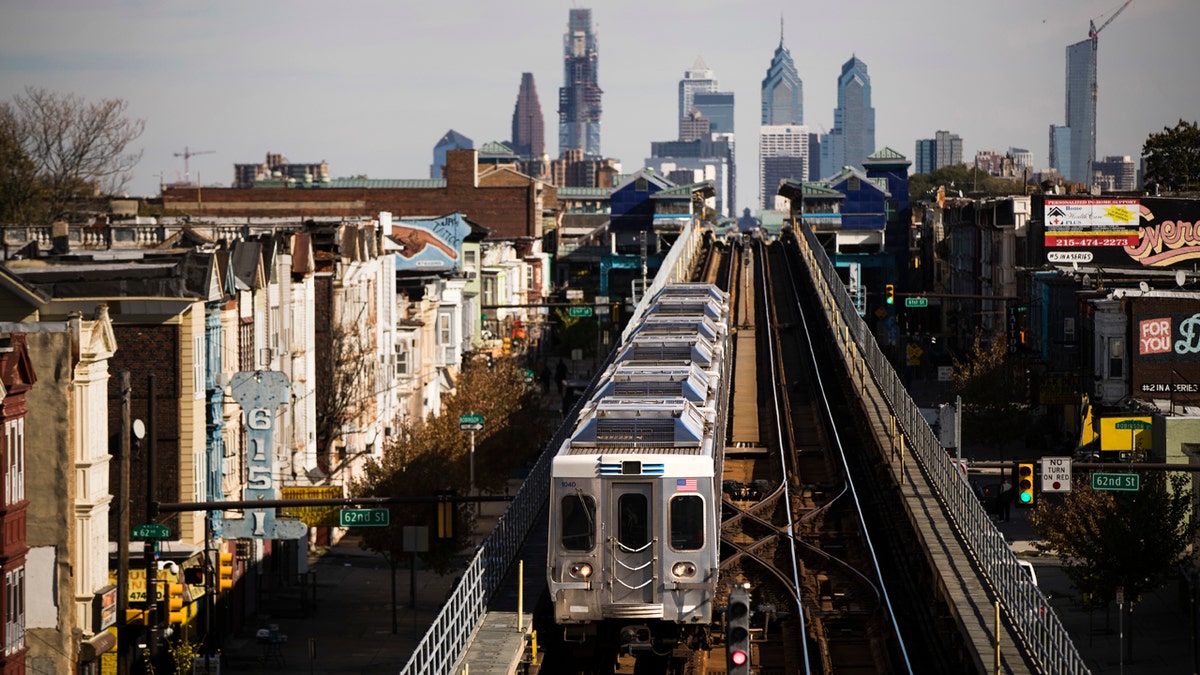
A train moves along the Market-Frankford Line in Philadelphia, Wednesday, Oct. 26, 2016. (AP Photo/Matt Rourke)
PHILADELPHIA – The city's main transit agency and a union representing about 4,700 workers were negotiating on a contract Monday as officials expressed worry that a looming strike could keep some residents from voting.
The Southeastern Pennsylvania Transportation Authority workers were gearing up to walk off the job after midnight if an agreement on a new contract isn't reached.
The strike would affect Philadelphia bus, trolley and subway lines, but not commuter rail lines and not service in areas outside the city. The city system's daily weekday ridership is about 900,000 trips, and nearly 60,000 public, private and charter school students use it to get to and from school.
City Council President Darrell Clarke said voters could be disenfranchised if their Nov. 8 commutes are lengthened by a strike.
"I cannot stress enough how critical this coming election is to Pennsylvania and the entire country," he said in a statement. "It is so important that every Pennsylvanian who intends to vote is able to exercise this sacred right. I am most concerned for voters who do not have flexible work rules and already have a limited window of opportunity to get to the polls on Election Day."
Pennsylvania has tighter absentee ballot rules than many other states and no early voting. The battleground state has seen almost non-stop campaigning in recent weeks by presidential candidates and their surrogates.
Meanwhile, businesses, hospitals and schools in the city were nailing down their strike contingency plans Monday.
The University of Pennsylvania announced it will partner with Drexel University, Penn Health System and Children's Hospital of Philadelphia to provide complimentary transit services to all employees.
SEPTA urged businesses to let employees work from home if possible or avoid having workers commute during peak times.
Officials for Catholic and public schools said operations will proceed as normal. Starting and ending times will remain constant.
The School District of Philadelphia announced Monday that students who use SEPTA and are unable to attend school due to lack of transportation will get an excused absence. Students who arrive late due to the strike will not be marked tardy.
Union officials have said the two sides are divided by pension and health care issues but also have highlighted noneconomic issues such as schedules, break time and driver fatigue.
In 2014, union members ratified a two-year contract that averted a threatened walkout. In 2009, a strike by SEPTA workers lasted six days.

